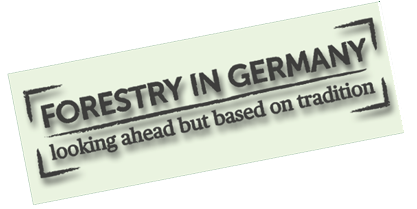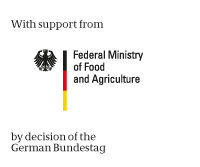Forest and game

In Germany, the hunting right is a property right that is tied to land. It is either exercised by the landholders themselves or leased out. Over 80 % of the hunting area is privately owned. The hunting right does not only include the permission to hunt certain game species, but also commits the hunter to engage in wildlife management. The two support pillars of German hunting are the so-called hunting district system and the wildlife management duty imposed on hunters.
Hunting district system
The hunting district system establishes the local competence and personal responsibility of holders of hunting rights for their districts. The hunting district system allows year-round nationwide monitoring by well-trained hunters. They provide information on the population status of wild game, for instance. Systematic monitoring of forest districts also offers a basic for research.
Wildlife management requirement
Hunters are called upon to preserve the habitats of game in our highly industrialised and densely populated country of Germany. Wildlife management means only to remove as much game as the population development allows, to maintain the basic living conditions of game as well as to avoid hazards (e.g. diseases and accidents caused by game). Wildlife management must be carried out in such a way as to prevent adverse effects on farming, forestry and fisheries, notably through damage caused by game. Wildlife preservation is embedded in the protection of biotopes and species. Measures conducted by owners of forest districts to improve habitats do not only serve the huntable game, but also benefit a large number of non-huntable animals subject to year-round protection.
source: www.bmelv.de






